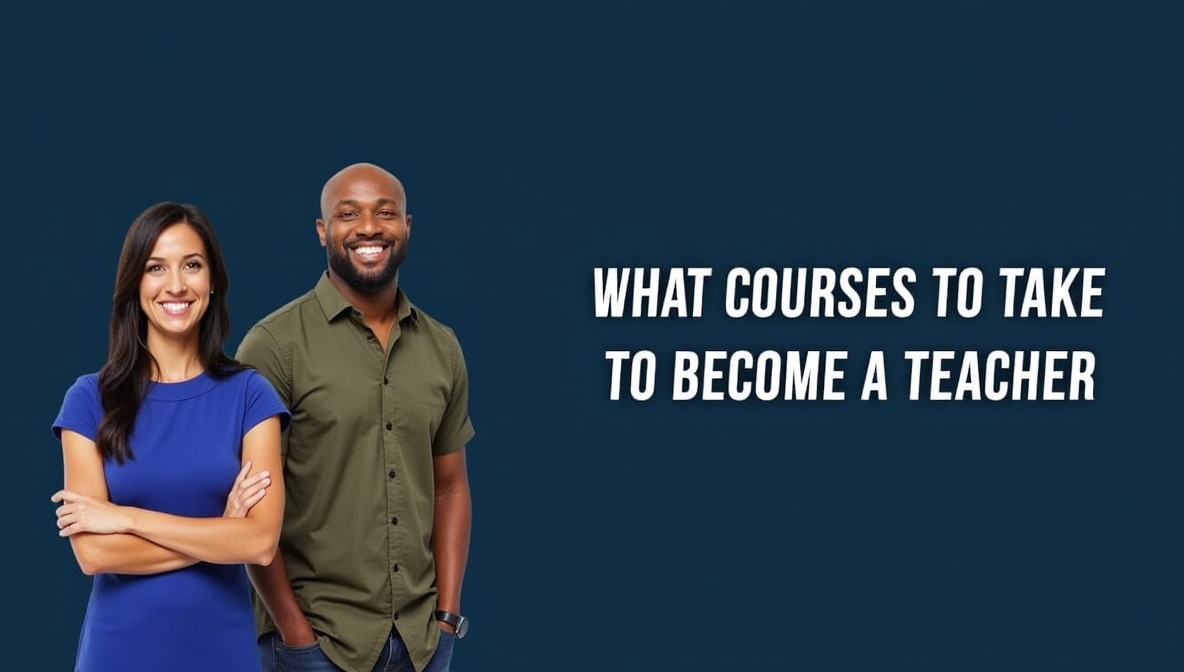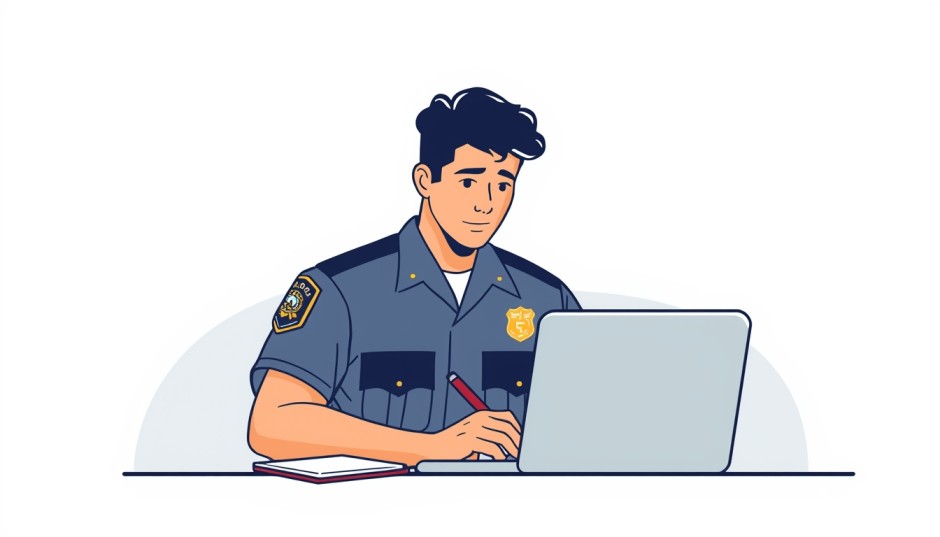Becoming a Teacher: Exactly What Courses You Need (From a Battle-Hardened Educator)
Let me paint you a real picture of my first day teaching. There I stood – 22 years old, freshly certified, facing a room of 35 high school juniors who immediately sized me up like predators eyeing wounded prey. Within minutes, a paper airplane hit my head. By week two, I was crying in the supply closet eating peanut butter straight from the jar with a plastic spoon.
Eight years and three schools later, I’ve mentored dozens of new teachers and served on hiring committees. I’m going to tell you exactly what courses matter in teacher prep programs – and which ones are complete wastes of time. Forget the glossy college brochures; this is the real deal from someone who’s been in the trenches.
Section 1: Choosing Your Educational Path
Option 1: Traditional Bachelor’s in Education
Best for: Those who know they want to teach K-12 straight out of high school
Typical 4-Year Breakdown:
Freshman Year:
- Intro to Teaching (the “do you really want this?” class)
- Child Psychology
- Basic Composition (you’ll write endless lesson plans)
- Math for Educators (yes, even English teachers need this)
Sophomore Year:
- Educational Technology (more than just PowerPoints)
- Classroom Management Theory
- Foundations of Special Education
- First field experience (10 hours observing real classrooms)
Junior Year:
- Content Methods Courses (how to actually teach your subject)
- Assessment Strategies
- Literacy Across Curriculum
- 50-hour practicum (you’ll teach a few lessons)
Senior Year:
- Student Teaching (full semester, 5 days/week)
- Capstone Portfolio
- Certification Exam Prep
Reality Check: My university’s program required 120 hours of fieldwork before student teaching. Most was observing teachers counting down the minutes until lunch.

Option 2: Subject Degree + Alternative Certification
Best for: Career changers or those who want deeper content knowledge
How It Works:
- Earn bachelor’s in your subject (History, Math, Biology, etc.)
- Complete post-bac certification (1-2 years)
- Pass state exams
Pros:
- More career flexibility
- Often cheaper
- Content expertise makes you stronger teacher
Cons:
- Less classroom prep before student teaching
- Some schools prefer traditional ed degrees
Personal Story: My colleague was a chemist for 15 years before switching to teaching. His real-world experience makes his chemistry lessons incredible.
Section 2: The Courses That Actually Matter
1. Classroom Management (The Make-or-Break Class)
What You’ll Learn:
- Proactive strategies (it’s all about prevention)
- Non-verbal cues (the “teacher look” is real)
- Restorative practices (not just punishments)
- Trauma-informed approaches
Why It Matters:
I failed miserably at this my first year. Had to completely reteach my systems in October after chaos reigned.
2. Special Education Foundations
Critical Topics:
- Writing IEP accommodations
- Differentiation strategies
- Inclusion best practices
- Disability awareness
Classroom Reality:
Last year, I had 9 IEPs and 4 504 plans in one English class. This course saved me.
3. Literacy Across Content Areas
Surprising Skills:
- Teaching adolescents to read complex texts
- Vocabulary strategies for ELL students
- Close reading techniques
- Disciplinary literacy (how scientists vs. historians read)

4. Educational Psychology
Key Takeaways:
- Piaget’s stages (why your 7th graders are suddenly irrational)
- Vygotsky’s Zone of Proximal Development
- Growth mindset applications
- Motivational theories that go beyond stickers
5. Content-Specific Methods
For Elementary Teachers:
- Guided reading groups
- Manipulative-based math
- Inquiry science lessons
For Secondary Teachers:
- Socratic seminars
- Lab report writing
- Historical document analysis
Section 3: The Student Teaching Gauntlet
What Nobody Tells You:
- You’ll work 60+ hour weeks for zero pay
- Some mentor teachers are amazing, others just want free help
- The kids will test you harder than your professor ever did
How to Survive:
- Observe multiple teachers (steal everyone’s best strategies)
- Start teaching actual lessons by week 3
- Keep a reflection journal (you’ll need it later)
- Build relationships with staff (future job references)
War Story: My mentor made me reteach a lesson four times until I got the questioning right. Hated it then, grateful now.
Section 4: Certification Exams Demystified
Common Tests:
- Praxis Core (reading, writing, math)
- Praxis Subject Tests (content knowledge)
- edTPA (teaching portfolio from hell)
Pro Tips:
- Take tests early in case you need retakes
- For edTPA, film your best lessons first
- Some states have alternatives (Massachusetts uses MTEL)
Section 5: Alternative Certification Paths
1. Teacher Residency Programs
- Paid positions while you learn
- Typically 1-2 years
- Often in high-need schools
2. Teach For America
- Controversial but fast
- 5-week summer institute
- Two-year commitment
3. District Alternative Certifications
- Work as teacher of record while certifying
- Varying quality of support
- Often have to take night classes
Warning: Alternative routes often mean being thrown into the deep end. My TFA friends had panic attacks weekly.
Section 6: Graduate Degrees – When and Why
Master’s in Education (M.Ed)
Best For:
- Pay increases (usually $3,000-$7,000 more annually)
- Specializations (ESL, reading specialist, etc.)
- Career changers needing pedagogy foundation
Subject-Area Master’s
Best For:
- Secondary teachers wanting deeper knowledge
- Community college teaching options
- Department chair aspirations
Money Talk: Many districts have tuition reimbursement. Wait until you’re eligible.
Section 7: The Hidden Curriculum of Teaching
What No Course Prepares You For:
- The IEP meeting where parents yell at you
- Grading 150 essays in one weekend
- Writing sub plans that actually get followed
- Politely declining unpaid committee work
- Spotting signs of abuse or depression
Survival Skills You’ll Develop:
- The “teacher stare” that stops misbehavior
- Grading while eating lunch
- Writing lesson plans in your shower
- Sleeping through fire alarms (after too many drills)
Section 8: The Real Timeline and Costs
Traditional Path:
- 4-year bachelor’s: $40,000-$100,000
- Certification exams: $300-$600
- Background checks: $50-$100
- 1 year job search (subbing first often required)
Alternative Path:
- Existing bachelor’s: already paid
- Certification program: $5,000-$15,000
- Testing fees: same as above
- Often hired faster in high-need areas
Section 9: The Good, Bad, and Ugly
The Good:
- Seeing struggling students finally “get it”
- Creative freedom in lesson design
- Summer breaks (though many work second jobs)
- Pension plans in some states
The Bad:
- Endless unpaid overtime
- Standardized testing pressure
- Parents who blame you for their child’s failures
The Ugly:
- Active shooter drills
- Politicians dictating what you can teach
- Colleagues who gave up years ago

Section 10: Final Advice From the Trenches
- Substitute first – Best reality check available
- Observe multiple grades – You might surprise yourself
- Take business electives – Useful exit strategy if needed
- Join your union – Worth every penny when trouble comes
- Develop a life outside teaching – Prevents burnout
FAQs From Future Teachers
1. Can I teach while getting certified?
Some states offer emergency certifications. You’ll be paid less with minimal support.
2. What’s the hardest part of certification?
Most struggle with edTPA’s video component or Praxis Core math.
3. Do I really need to student teach?
Yes, and it’s brutal but invaluable. Some alternative routes shorten it.
4. What if I fail my first year?
Many do. Good districts provide mentors. Bad ones will chew you up.
5. Would you choose teaching again?
On days when a former student emails thanks, absolutely. On report card nights… ask me again after summer break.







